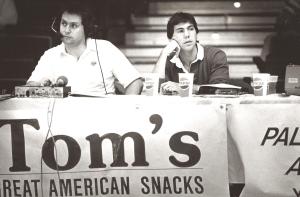The Art (and Practice) of Self-Promotion
I attended my 35th high school reunion last weekend – but not for the typical reasons of reconnecting with old friends or catching up with acquaintances. I knew none of the few people I still am in touch with from high school would be there, and that I wouldn’t recognize the vast majority of attendees, let alone have had even known them in high school.
I went primarily to practice self-promotion and marketing, tactics at which I am not highly proficient, but which I need to improve to raise awareness of and generate interest in my two new books published by Sirenian Publishing. These are skills which I also will 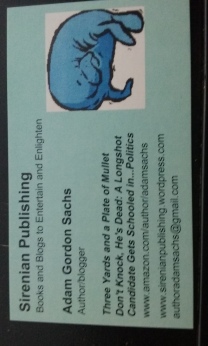 need in the future, as I plan to launch an independent counseling practice. Having just obtained Sirenian Publishing business cards, I wanted to see if I could work the two books I have authored into conversations and grease some palms with the information.
need in the future, as I plan to launch an independent counseling practice. Having just obtained Sirenian Publishing business cards, I wanted to see if I could work the two books I have authored into conversations and grease some palms with the information.
I’ll call my endeavor a success, having talked about the books (the novel Three Yards and a Plate of Mullet about a rookie sportswriter in Florida and the nonfiction political memoir Don’t Knock, He’s Dead: A Longshot Candidate Gets Schooled in the Unseemly Underbelly of American Campaign Politics) and given out cards to the eight or so classmates I spoke with at any length.
Sorry to sound so crass, Winston Churchill High School Class of 1981. However, it wasn’t completely an exercise in marketing, public relations and sales. I also attended to be social and with the thought of the possibility of meeting engaging people and establishing a new friendship or two.
It’s just that I know that I fall on the Introversion side of the Myers-Briggs personality inventory and that I don’t get energized by joining big crowds of people I don’t know in loud, cramped spaces. In fact, when I first walked into the reserved room at the restaurant and observed the scene of many strangers who 35 years ago had something in common with me engaged with each other in loud, animated conversation, my first instinct was to leave. I wouldn’t know anybody and I wouldn’t fit in, I thought. I walked straight past the crowd to the bathroom and then stopped at the far end of the bar and watched a football game on TV for a minute to compose myself, get in the spirit and prepare to plunge into the social melee.
It’s also that I associate high school with a difficult time of life that I never felt I could embrace – no fault of my high school classmates. Just before 9th grade, I moved, the result of my parents’ divorce years earlier and my mother’s struggles with her health and ability to function adequately as a single parent. I didn’t want to move to the new high school district, leaving the neighborhood and classmates I had known since kindergarten, and I resented it. It was difficult to adjust and break into cliques and friendships that had been established for years at the new school. I was an outsider and naturally quiet, and never really felt like my new high school or community were my places.
Luckily, just as I left my safe place at the bar to mill through the crowd and face my fear, I encountered a guy I recognized who was with his fiancé. We talked for 45 minutes while I drank a beer and they ate dinner. The ice was broken. That’s what it took to quell my anxiety, open up more, engage in the event and enjoy myself – while still subtly working on self-promotion (At least, I hope I wasn’t blatant. I think I had some tact.) All the classmates I met at reunion were exceedingly friendly and accepting, and I enjoyed conversations. I was grateful for that. As a former reporter, I asked people I met a lot of questions about themselves, so I wasn’t overly narcissistic about self-promotion.
The reunion was an event I wouldn’t have attended if I wasn’t an author. I just wouldn’t have been interested enough to make the effort. But the only way to become better known is to put yourself out there more, and when you do, good things you don’t expect and side benefits can happen.
I talked to a few people at reunion I would like to see again. They don’t even have to buy a book – but it would make me want to see them again more (final shameless plug)!

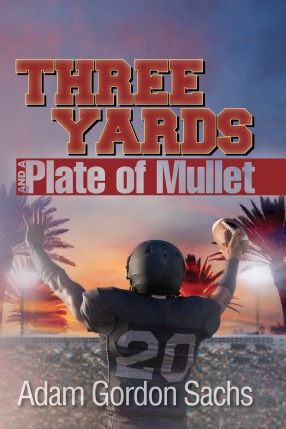 and Disaster, and treat those two imposters just the same,” embracing both the barbs and laurels with ego holding steady.
and Disaster, and treat those two imposters just the same,” embracing both the barbs and laurels with ego holding steady.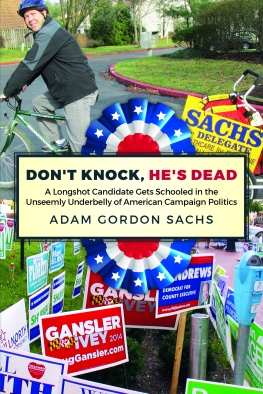 counselor, and author of the Spartan Considerations political blog, which I followed during my campaign and referenced several times in the book.
counselor, and author of the Spartan Considerations political blog, which I followed during my campaign and referenced several times in the book.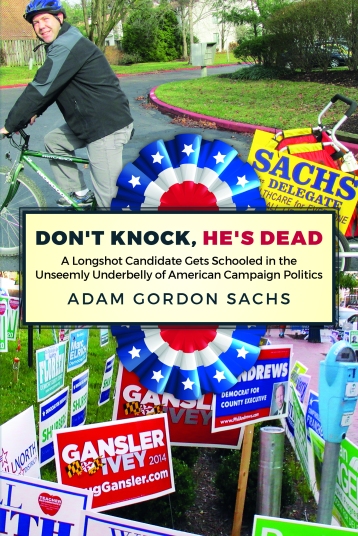 he time is right to run, someday, Don’t Knock, He’s Dead will either inspire you or disavow you of that foolish notion forever.
he time is right to run, someday, Don’t Knock, He’s Dead will either inspire you or disavow you of that foolish notion forever.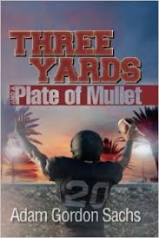 triumphed over long odds as an unknown author by persuading a publisher to acquire my book. I had wanted to progress from a self-published author to one backed by the heft, resources and credibility of a traditional commercial publisher, which I believed would open more doors and opportunities to bring the novel to a broader audience. I expected there would be a payment for my work. But when I read the agreement, I realized it wasn’t quite that simple.
triumphed over long odds as an unknown author by persuading a publisher to acquire my book. I had wanted to progress from a self-published author to one backed by the heft, resources and credibility of a traditional commercial publisher, which I believed would open more doors and opportunities to bring the novel to a broader audience. I expected there would be a payment for my work. But when I read the agreement, I realized it wasn’t quite that simple.

